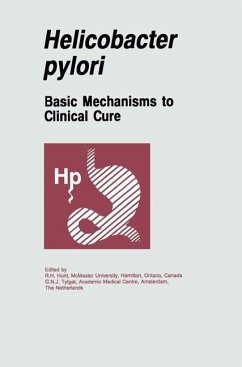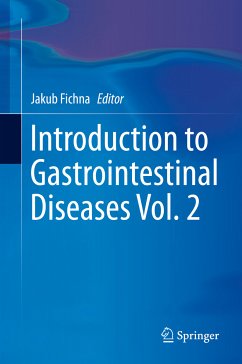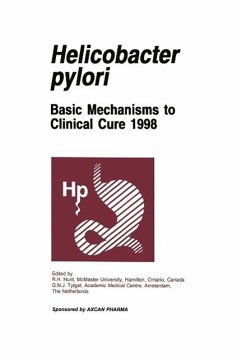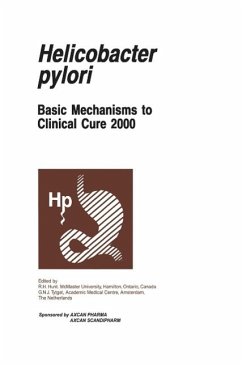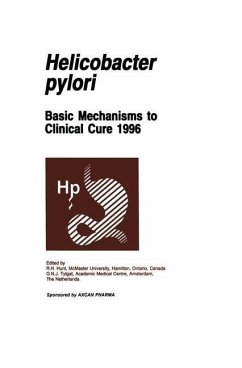
Helicobacter pylori (eBook, PDF)
Versandkostenfrei!
Sofort per Download lieferbar
72,95 €
inkl. MwSt.
Weitere Ausgaben:

PAYBACK Punkte
36 °P sammeln!
This book provides a detailed review of the most recent pathogenetic, diagnostic and therapeutic approaches in connection with Helicobacter pylori, along with priority areas in research and trends in clinical practice to address this significant pathogen acknowledged as the causative agent in a wide range of diseases, including gastric adenocarcinoma, MALT lymphoma and immune thrombocytopenic purpura (ITP). Medical authorities worldwide now recommend a "test and treat" strategy for this bacterial infection. Eradication therapy approaches range from general mass eradication therapy to tailor-ma...
This book provides a detailed review of the most recent pathogenetic, diagnostic and therapeutic approaches in connection with Helicobacter pylori, along with priority areas in research and trends in clinical practice to address this significant pathogen acknowledged as the causative agent in a wide range of diseases, including gastric adenocarcinoma, MALT lymphoma and immune thrombocytopenic purpura (ITP). Medical authorities worldwide now recommend a "test and treat" strategy for this bacterial infection. Eradication therapy approaches range from general mass eradication therapy to tailor-made therapy for antibiotic-resistant refractory infection. In regions with high prevalence of H. pylori infection, the infection itself would be considered a major parameter to predict the risk of gastric adenocarcinoma development. The main interest has shifted recently to the risk stratification strategy for gastric cancer development and to the wide-ranging application of its serological prevention program.
This book will benefit all gastroenterologists, hematologists, dermatologists, primary care doctors, epidemiologists, physicians who related with community hygiene, as well as basic scientists, particularly microbiologists, bacteriologists, pathologists, molecular biologists, biochemists, immunologists and oncologists.
Dieser Download kann aus rechtlichen Gründen nur mit Rechnungsadresse in A, B, BG, CY, CZ, D, DK, EW, E, FIN, F, GR, HR, H, IRL, I, LT, L, LR, M, NL, PL, P, R, S, SLO, SK ausgeliefert werden.





